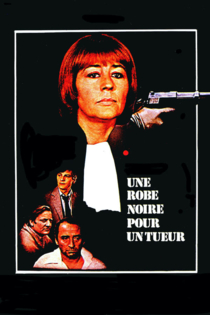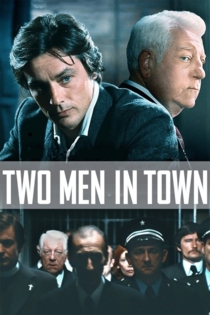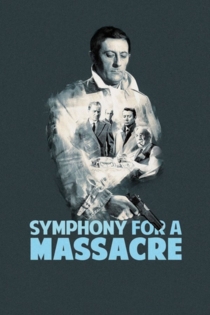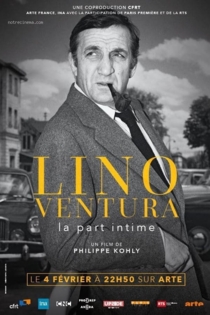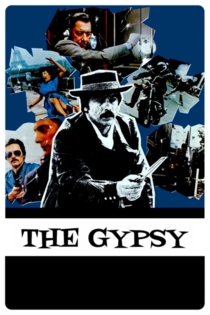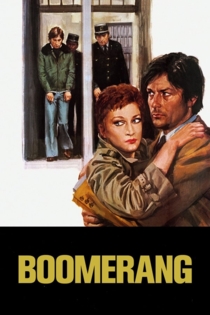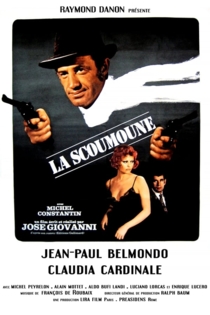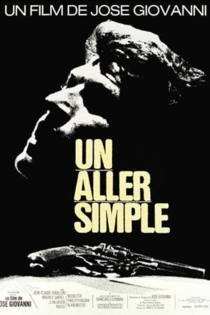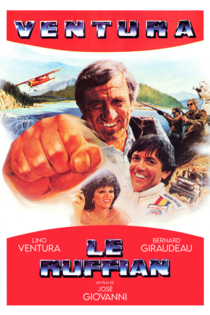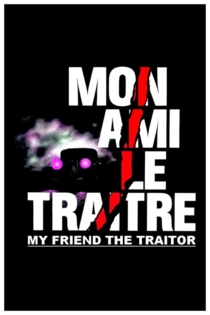
José Giovanni
1923 - 2004A former collaborationist and criminal who at one time was sentenced to death, Giovanni often drew his inspiration from personal experience or from real gangsters, such as Abel Danos in his 1960 film Classe tous risques, overlooking that they had been members of the French Gestapo. In his films as well as his novels, while praising masculine friendships and advocating the confrontation of the individual against the world, he often championed the underworld but was always careful to hide his own links with the Nazi occupiers of France during World War II.
Of Corsican descent, Joseph Damiani received a good education, studying at the Collège Stanislas de Paris and the Lycée Janson de Sailly. His father, a professional gambler who was sentenced to a year in prison for running an illegal casino, owned a hotel in the French Alps in Chamonix. Joseph worked there as a young man and became fascinated by mountain climbing.
From April to September 1943 Damiani was a member of Jeunesse et Montagne (Youth and Mountain) in Chamonix, part of the Vichy Government youth movement controlled by Pierre Laval.
In February 1944 Damiani came to Paris and through his father's friend, the LVF leader Simon Sabiani, he joined Jacques Doriot's fascist French Popular Party (PPF). His maternal uncle, Ange Paul Santolini alias "Santos", who ran a restaurant patronized by the Gestapo, and his elder brother, Paul Damiani, a member of the Vichy paramilitary Milice, introduced Joseph into the Pigalle underworld.
In March 1944 Joseph Damiani went to Marseille where he became a member of the German Schutzkorps (SK), an organization which hunted down Service du travail obligatoire - STO (Compulsory Work Service) dodgers. He served as bodyguard to its Marseille chief and took part in many arrests, often blackmailing his victims.
In Lyon, in August 1944, posing as a German police officer along with an accomplice (Orloff, a Gestapo agent who was shot for treason at the Liberation), Damiani blackmailed Joseph Gourentzeig and his brother-in-law Georges Edberg, two Jews who were in hiding. Gourentzeig had bribed a member of the Milice - a friend of Damiani’s – in an attempt to secure his parents' release from a detention camp. They were not freed and Gourentzeig's father, Jacob, was shot by the Germans shortly after, on 21 August 1944, along with 109 Jewish hostages in the Bron (Lyon airport) massacre.
After the Liberation in Paris on 18 May 1945, Joseph Damiani, his brother Paul, Georges Accad, a former Gestapo agent, and Jacques Ménassole, a former member of the Milice wearing a French Army lieutenant's uniform - all posing as Military Intelligence officers - abducted Haïm Cohen, a wine merchant, accusing him of being a black marketeer. He was tortured until he gave them the key to his safe and a check for 105,000 francs. He was then shot and his body thrown into the Seine. Joseph Damiani cashed the check at Barclay's Bank under the identity of "Count J. de Montreuil". ...
Source: Article "José Giovanni" from Wikipedia in English, licensed under CC-BY-SA 3.0.
Claude Sautet ou La magie invisible
N.T. Binh
Claude Sautet, Bertrand Tavernier
Thanks to a series of unpublished interviews, recorded shortly before his death, director Claude Sautet gives us a fascinating lesson in cinema. Through his thirteen films, he tells about his career and his work as a director.
Claude Sautet or the Invisible Magic
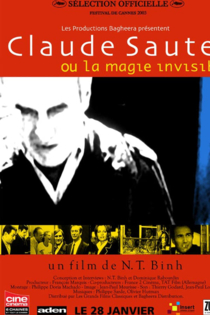
Last Known Address
José Giovanni
Lino Ventura, Marlène Jobert
Marceau Léonetti, a competent and energetic officer stops by chance the son of an influential lawyer driving under the influence of alcohol. A few months later, the lawyer falsely accuses Léonetti as being violent and incompetent. As a result Marceau is transferred to a small police station, where he meets young and beautiful Jeanne. Soon they are faced with a tough investigation.
Last Known Address
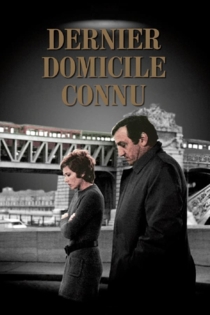
Mon père, il m'a sauvé la vie
José Giovanni
Bruno Cremer, Vincent Lecoeur
Novelist and filmmaker Jose Giovanni turned to the remarkable true story of how his father helped him escape a date with the guillotine for this drama, which is based closely on events from his own life. During World War II, Manu (Vincent Lecoeur, as a character Giovanni modeled after himself) fought with the French Resistance, but near the end of the war he fell into a life of crime, and in 1947, 22-year-old Manu was arrested for his part in a bungled robbery that left a man dead. While Manu did not pull the fatal trigger, he refuses to say who did, since it would mean implicating his uncle, one of the few members of his family who has stood by him; Manu's brother is dead, and he turned his back on his father Joe (Bruno Cremer) years ago. Manu is sentenced to death, and while he protests his innocence, his attempts to escape from prison do little to convince anyone that he's telling the truth.
My Father Saved My Life
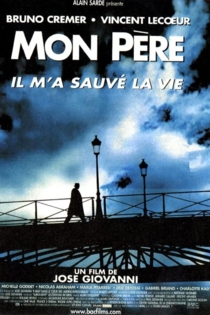
La loi du survivant
José Giovanni
Michel Constantin, Alexandra Stewart
In 1960, Stan, the protagonist, after having made a fortune in Asia, returns to Corsica, to visit a friend's tomb. In Ajaccio, he meets Helene, who she rescues from her kidnappers, who take advantage of her "charms" in a house of ill reputation. They hide then somewhere in the mountains, where they are pursued by the Corsican mobsters...
Law of Survival
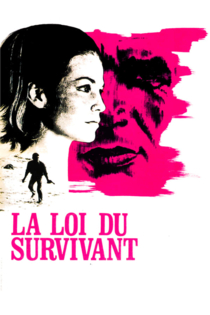
Le Rapace
José Giovanni
Lino Ventura, Xavier Marc
1938, a Central America country. A Frenchman who goes by the name "Le Rital" is hired to take out the local dictator. Young Chico is assigned as his right-hand man, whom he impresses. Will a friendship form between them?
Birds of Prey
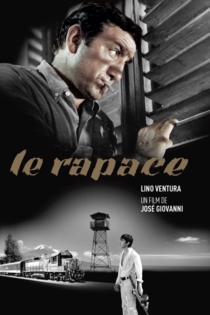
Les égouts du paradis
José Giovanni
Francis Huster, Jean-François Balmer
In July of 1976, the Societé Générale of France was robbed of well over $10 million dollars by a group burrowing through the sewers of Paris. This movie is based on a book by the thieves' mastermind, Albert Spaggiari. The famous theft won the nickname, "the great drain robbery," and this romanticized cinematic retelling of the true story stars Francis Huster as Spaggiari.
The Sewers of Paradise
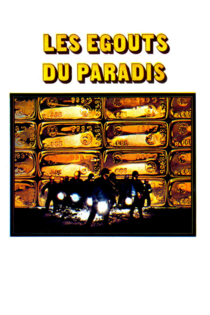
Une robe noire pour un tueur
José Giovanni
Annie Girardot, Claude Brasseur
The "black robe" in the title of this suspense film belongs to a female lawyer, Florence Nat who has just lost a case in which she defended Simon Risler, a man wrongly accused of murder. Risler escapes before he can be put in prison, and seeks help from attorney Nat in finding the real killer, partly by going after the police inspector who framed him in the first place. A retired surgeon, in the process of setting up a drug rehab clinic gets involved in solving Risler's case, and soon the solution seems to be pointing to high-ranking figures with every desire and ample means to keep the truth well-hidden.
Une robe noire pour un tueur
